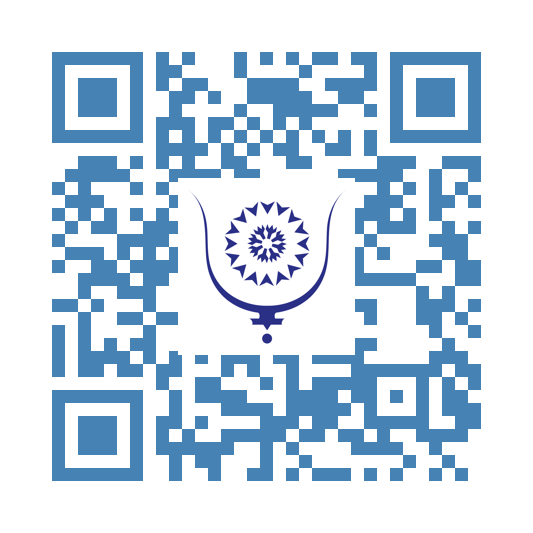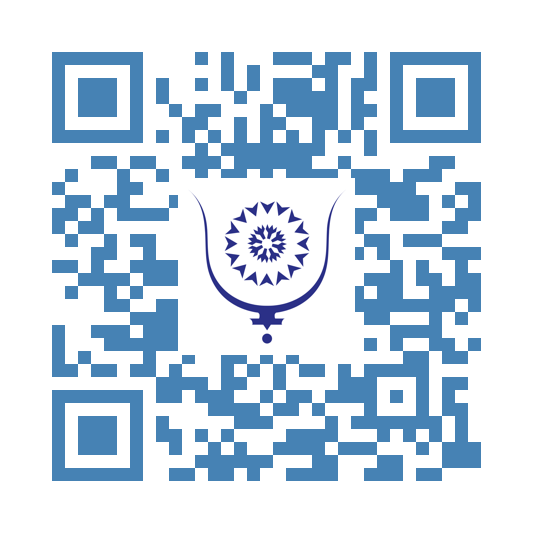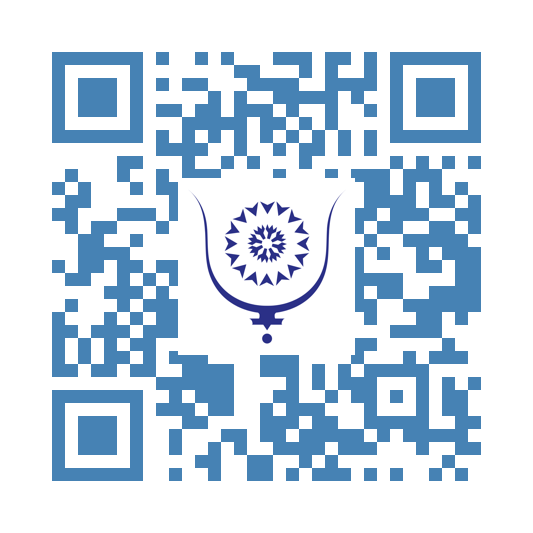Ibtissam, please : Allah is Allah...
89
Recently, Ibtissam Lachgar, who calls herself an activist, wore a T-shirt of no value, except that she deliberately intended to insult millions of Moroccans and undoubtedly many believers, Muslim or not. God is the omniscient Creator, regardless of religion or rituals. Madam found it clever to display a T-shirt with a strange inscription, not at all amusing: an offense to the divinity.
No, madam, Allah is Eternal without beginning or end, beyond time. He is Almighty, and His power is infinite and absolute. He is Merciful, full of compassion and kindness towards human beings, including you.
What did you have for breakfast that morning, madam?
By this useless act, you seem to have forgotten that faith is also a fundamental right. Americans, whose modernity cannot be denied, claim it to the point of engraving it on their dollar bill. Belief in God, in Allah, is a fundamental, universal, immutable pillar. To say or imply mocking or even simply disrespectful words towards what is sacred in the collective consciousness is to hurt deep sensitivities. It is an affront to the spirituality of billions of people.
Yes, it is important to remind that everyone is free to live their life and love whom they want. However, there is one condition: not to unnecessarily offend others. Inventing an impromptu epithet for Allah goes far beyond personal debates linked to sexual orientation: it harms the deep faith of billions of people, including the 36 million Moroccans. This provocation cannot be considered a mere wit or a brave claim: it is a misstep that threatens harmony and social cohesion.
Indeed, God does not need anyone to defend Him, much less my humble self, but admit that God is everywhere, simply present in every believer outraged by your lowly stylized statement, which is not freedom of expression but a qualified insult. It is billions of believers you insult with your superfluous act.
Moroccans who strive to make their country a state of law also want social peace and cohesion to be fully preserved, within necessary limits to freedom of expression. This freedom can be neither absolute nor without red lines, and this is a genuine protection. Elsewhere, where the state is less protective, a provocation like yours would have caused far worse consequences for you.
My generation, and those that followed, have fought extensively for freedom, notably the freedom to express oneself, develop ideas, and help society evolve and emancipate within a civic framework. But madam, yes to freedom, but within respect for laws freely chosen by the majority. This is the foundation of democracy: adopting the will of the majority, even if very narrow. In 2011, it was broad enough to set supreme rules and strives to respect them at all costs.
You must understand that freedom does not mean unlimited license. Democracy is based on a constitution and laws adopted by the people themselves. These laws define what is acceptable in public space. Your supporters, Mrs. Lachgar, often foreigners or fringe elements, must understand that it is Moroccans who decide on their laws, according to their history, culture, and values. It is not up to minorities, even vocal ones, or foreigners to this secular context, to redefine the rules of coexistence in a sovereign country.
Yes, activism is vital and contributes to progress and the pushing of boundaries, but not sterile and counterproductive provocation such as you have just committed.
It is also fair to acknowledge that Morocco has tolerated peaceful advances in favor of sexual minorities. Some of your acquaintances know this well. Debates, demands, and defense of individual rights are permitted, within legal and social frameworks. But when a public figure—as you are with your MALI—takes a "step too far" with a shocking gesture against the very essence of religion, this constitutes an unnecessary provocation, all the more serious when occurring in a sensitive period. You are a declared repeat offender who has so far gotten away with it. This shows a tolerance, albeit relative, but tolerance nonetheless, towards movements as marginal as yours. Minorities have always existed and always will, but you should understand that cohesion is a heavy responsibility of the state, and it is unacceptable to play with such a sovereign prerogative with multiple facets.
Your arrest or administrative detention should not be seen solely as a sanction but rather as a protective measure. Would you have taken a few steps in public space with your T-shirt without becoming a target for a probable violent extremist, ready to resort to illegality? On the very day of your counterproductive gesture, police services uncovered yet another vehement extremist, ready according to his ideology to restore a "perfect world" where people like you have no place. It escapes you that Morocco firmly fights all forms of extremism, religious or ideological, and is an ideal target precisely because it accepts differences and diverse orientations, because it does its best to leave room and space for everyone. Freedom to think and live is precisely the opposite of extremism, whatever form it takes. Protecting social peace also means protecting those who sometimes unconsciously or knowingly contribute to destabilizing it, as you do.
You may not know, but in France, a mayor had to suspend the screening of the film "Barbie," which promotes homosexuality, under pressure from some inhabitants of his municipality. This shows that even further north, there are still hostile reactions to your orientations.
Morocco is a nation rooted in strong historical, cultural, and religious values, with certainly some hypocrisy. This is not a flaw but possibly a true asset. Individual freedom must be exercised within the framework of respect for democratically defined values and laws. Your mistake was to cross these boundaries, thus shaking one of the indisputable foundations of Moroccan identity.
It is up to everyone, Moroccans and residents, to respect the country's tranquility and allow everyone the freedom to live in peace, without provoking or dividing.
Share:
Ibtissam, please : Allah is Allah...
copy:
https://bluwr.com/p/336611398
Confiscated Freedoms: El Harrach and Tindouf, Two Faces of the Same Oppression...
408
It was while reading, moved, the heartbreaking letter from Algerian writer Boualem Sansal, addressed ultimately to everyone, that the idea for these few lines came to me. In this letter, written from El-Harrach prison, Sansal fiercely denounces the political repression and arbitrary incarceration imposed by the Algerian regime. This denunciation quickly made me think of the tragic situation of the population confined by the same regime for nearly fifty years in the Tindouf camps in Algeria.
My thoughts wandered randomly between the zealots who are there, like my high school friend Sadati, bearers of a chimera; those who stay there without even knowing why; those who have aged there; those buried there; and those born there. It is on these last that my thoughts particularly lingered.
The Tindouf camps shelter a few thousand young people born in exile, rather exposed where their parents ultimately did not choose to be, under extremely harsh conditions. For many, they are not even originally from the coveted lands nor bear any claim. They mainly depend on humanitarian aid, live in total precariousness, and see their well-being deteriorate, while those living just a few miles away enjoy abundance, comfort, and rights. They did not ask to be there and dream, like all their peers, of a better life, which truly exists on the other side.
Unlike a traditional prison with visible walls, like El Harrach, the Tindouf camps are an open-air prison, a constrained space where these youths are held without trial, without hope of freedom, nor any possibility of returning to their homeland—not by their own choice, but that of their jailers.
The common point between El Harrach and Tindouf: the sordid game of a military regime from another era.
This prolonged situation strikingly evokes the deprivation of freedom suffered by the detainees of Tindouf and the Algerian political prisoners Boualem Sansal describes in his letter. Both embody the same silenced voice, the same hope confiscated by the whims of officers who only carry the name, and by a military caporalism that, since 1962, continuously invents enemies, uses torture, repression, and deprivation of fundamental rights to maintain its grip on one of the richest countries in the world. This regime has stifled all democratic expression, from annulling election results to the spectacular assassination, broadcast live on television, of President Mohamed Boudiaf, sending a message of terror to the whole people. Recently, it brazenly repressed the peaceful Hirak protests and imprisoned their leaders. This regime no longer hesitates to mistreat even its most loyal servants. Randomly, prime ministers, ministers, high dignitaries, businessmen, generals, and journalists, even foreigners, find themselves subjected to quick trials where only the voice of their master resounds. They end up in the same prison, the famous El Harrach.
In his letter, Sansal expresses the physical and moral pain of a man imprisoned for having evoked history, dared to defend justice and dignity. His words carry the voice of all those whom the regime seeks to silence. This captive voice painfully echoes the fate of the youngsters held in Tindouf, also deprived of their most basic freedoms and condemned to endless waiting in a desert environment, hostile and hopeless.
Far from being a mere analogy, this comparison reveals a universal reality: whether behind bars or in the vast inhospitable desert, deprivation of freedom, forced exile, and broken hope remain the instruments of relentless political oppression. For these youths, the "march through an endless desert" is both a physical ordeal marked by extreme poverty, scorching heat, and isolation, and a metaphor for their quest for identity, dream of regaining their freedom, and joining the motherland.
Beyond denunciation, in his letter, Sansal makes a solemn appeal to France, asking it not to sacrifice its values on the altar of mercantile contingencies. The same appeal is addressed to the international community, on behalf of the young detainees of Tindouf, so that human rights principles are not sacrificed on the altar of geopolitical interests. This appeal is all the more relevant facing the situation of these youths, many of whom are not even originally from the Moroccan Sahara but are still imprisoned in a situation of exile and oblivion.
Thus, behind two different walls, a prison cell and undocumented, unrecognized refugee camps, lies the same tragedy: human beings reduced to waiting, to deprivation of liberty, and to a silent struggle not to disappear. This convergence highlights the urgency of strong humanitarian and political action to end these imprisonments so that freedom of thought, of living, and of deciding one’s own destiny is never again captured by an oppressive political machine, devised and implemented by an anachronistic military staff.
Thank you, sir, for awakening in me this fiber of compassion, even pity, for young people who deserve to live a better future.
I take here again Boualem Sansal’s words, which I address to the youth imprisoned in Tindouf:
*"Fear is a prison larger than the one where I find myself, and it is harder to break. But I know that one day, the wall will fall. Dictators always end up falling."*
Youth of Tindouf,
You will break the barbed wire, you will cross the checkpoints to return home by the strength of your character and the power of your will. Your country, that of your ancestors, the Kingdom of Morocco, awaits you; the future opens its arms to you; life will smile upon you for eternity, you will taste freedom there, the joy of living, of building yourself and of ensuring a happy future for your children. Your dreams will come true there and your ambitions will be realized. You will be the continuation of your ancestors in a diverse and powerful nation as it has been for centuries. You will help enrich humanity by your knowledge, your creativity, your genius.
You just have to dare.
Share:
Confiscated Freedoms: El Harrach and Tindouf, Two Faces of the Same Oppression...
copy:
https://bluwr.com/p/330307572




